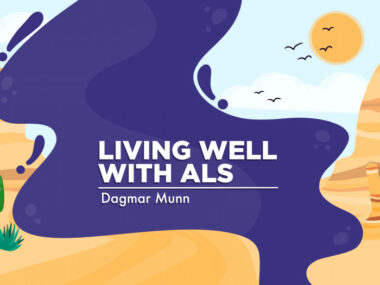Avextra to launch Phase 2 trial of cannabis-based medicine in Italy
NEUROBIS trial will test treatment for ALS, Parkinson's, Alzheimer's
Written by |

Avextra is set to launch a Phase 2 trial in Italy to test a cannabis-based oral medication for the management of symptoms in people with amyotrophic lateral sclerosis (ALS) and other neurodegenerative diseases.
The announcement comes after clearance from both the Italian Medicines Agency and the Ministry of Health of Italy. The NEUROBIS trial, which will run at two Italian sites, will randomly assign people with ALS, Parkinson’s, and Alzheimer’s disease to receive the cannabis-based therapy or a placebo for about three years.
It is sponsored by the AOU Maggiore della Carità in Novara, and will be funded by the Bando Ricerca Finalizzata through a grant from the Italian Ministry of Health, as part of the National Health Research Program.
Phase 2/3 trial testing cannabis-based therapy for palliative cancer care
The approval and funding of the trial by Italian regulators means that agencies across Europe are supporting studies to obtain clinical evidence for cannabis-based medicines, according to the company. Avextra is also collaborating in a Phase 2/3 trial (NCT06097533), called BELCANTO, that’s running in Germany to investigate its cannabis-based therapy as part of palliative care for people with cancer.
“We are excited to support a second Phase II clinical trial NEUROBIS in partnership with a leading university hospital in Italy, the AOU Maggiore della Carità Novara,” Bernhard Babel, PhD, CEO at Avextra, said in a press release. “With two active Phase II clinical trials, … BELCANTO in Germany and NEUROBIS in Italy, Avextra is uniquely positioned with the necessary skills and capabilities to design clinical trials and develop pharmaceutical [intellectual property] with Cannabis-based medicines with the potential to improve patient’s quality of life.”
The cannabis plant contains more than 100 active compounds, of which tetrahydrocannabinol (THC) and cannabidiol (CBD) are the most well-known. In addition to the known psychoactive and calming effects of CBD and THC, these cannabinoids are also known to have anti-inflammatory and neuroprotective effects that may help alleviate certain symptoms of neurodegenerative diseases.
In ALS, preclinical and clinical studies have demonstrated medical cannabis can help to manage pain, sleep issues, appetite loss, stiff muscles, and depression. However, the effects tend to vary depending on the exact composition of cannabis products, namely the amount of THC and CBD contained in them.
Avextra aims to develop safe and effective cannabis-based medicines for patients in whom conventional therapies have failed to provide adequate symptom relief.
“At our hospital … we observe an increase in the number of individuals affected by dementia, Parkinson’s disease and ALS who require help with their symptoms,” said Letizia Mazzini, MD, principal investigator for NEUROBIS, and also the director of neurology at AOU Maggiore della Carità. “It is imperative to increase disease awareness and availability of treatment options to address these patient needs.”






